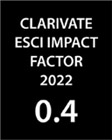The concept of territorial capital – elements of an urban entrepreneurial environment
DOI:
https://doi.org/10.17649/TET.30.1.2699Keywords:
territorial capital, territorial competitiveness, regional economic growth, entrepreneurshipAbstract
The point of departure is the nature of endogenous potentials as interpreted by Roberto Camagni’s concept of the territorial capital. The overall objective of the study is to present the highlighted capital values of the “innovative cross” in an urban business environment. Territorial capital describes territorial competitiveness. Several authors deal with its endogenous regional elements. Each territorial capital analysis interprets this concept as territorial values in a special context.
In the practical part of the study we present the results of a survey conducted among businesses in a Hungarian middle city, Győr, and its “automotive” agglomeration. The survey was based on a pilot questionnaire. In the light of Győr’s development we present territorial values, which after some more detailed research may provide some benchmark figures for future actions toward urban development. These results are mainly about ownership relations, R&D cooperation and collective activities. The study examines how these – in many cases intangible – values appear as “Camagni theoretical capital elements”.
Based on this, the study can be divided into three main parts. A presentation of the theoretical background introduces the theoretical classification of territorial capital and encompasses key findings and some critical reviews. The second part follows this method and highlights the components within the “innovative cross”, which we try to identify, using the research findings. This test is important because capital elements of the “innovative cross” generate regional knowledge transfer and innovation. These elements are essential to an innovative milieu in any given territory. The third part is about processing the results of the above mentioned survey.
According to our findings we can say, that the overall characteristic of the territorial capital concept can be only partially applied when analysing real-life territories with special capital components. Moreover, we can see the multi-interpretation effect already on the theoretical level as well. In spite of this, Camagni’s concept of separating capital elements of the “innovative cross” is novel and useful. Due to this, several authors started to emphasize these innovative elements. This can be a key point in future regional development processes and can provide a theoretical foundation for further research of each capital components. At the same time it seems to be clear that this concept cannot be used as a tool yet, neither in the case of overall measurement of regional competitiveness nor in the case of producing an overall and comparable value map in any given region.
Downloads
Published
How to Cite
Issue
Section
License
Authors wishing to publish in the journal accept the terms and conditions detailed in the LICENSING TERMS.






